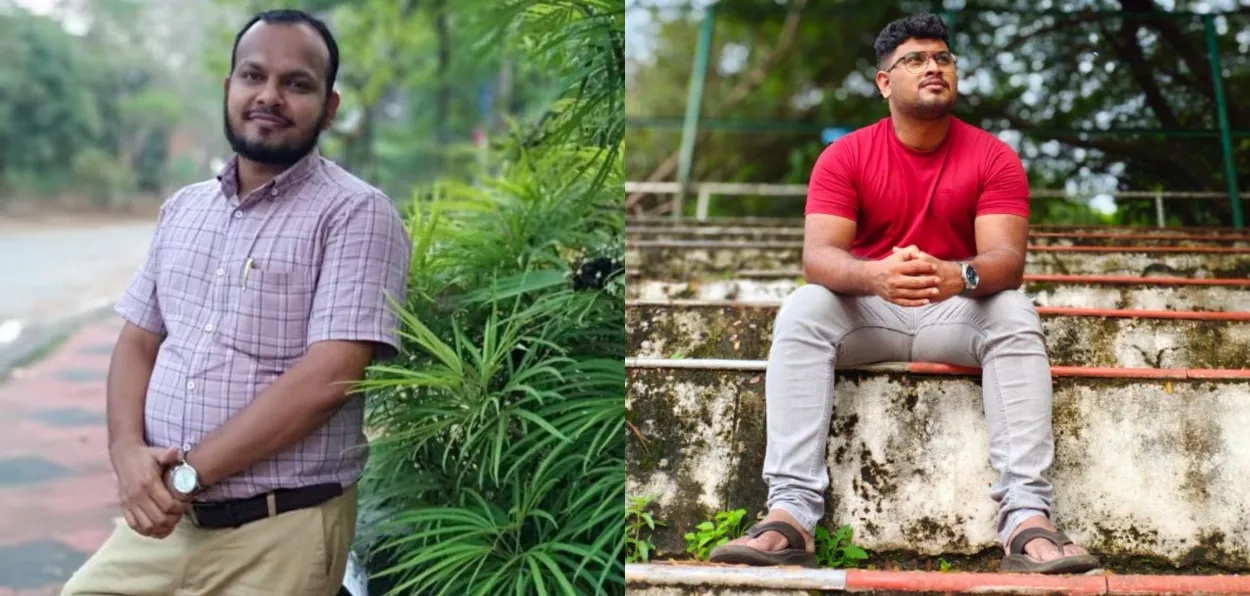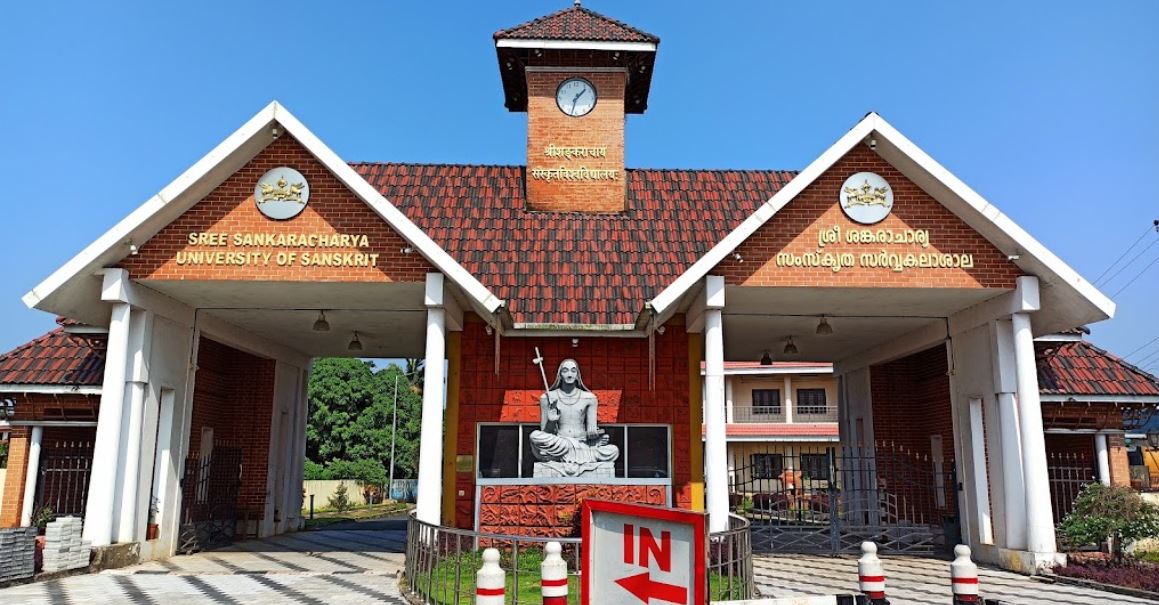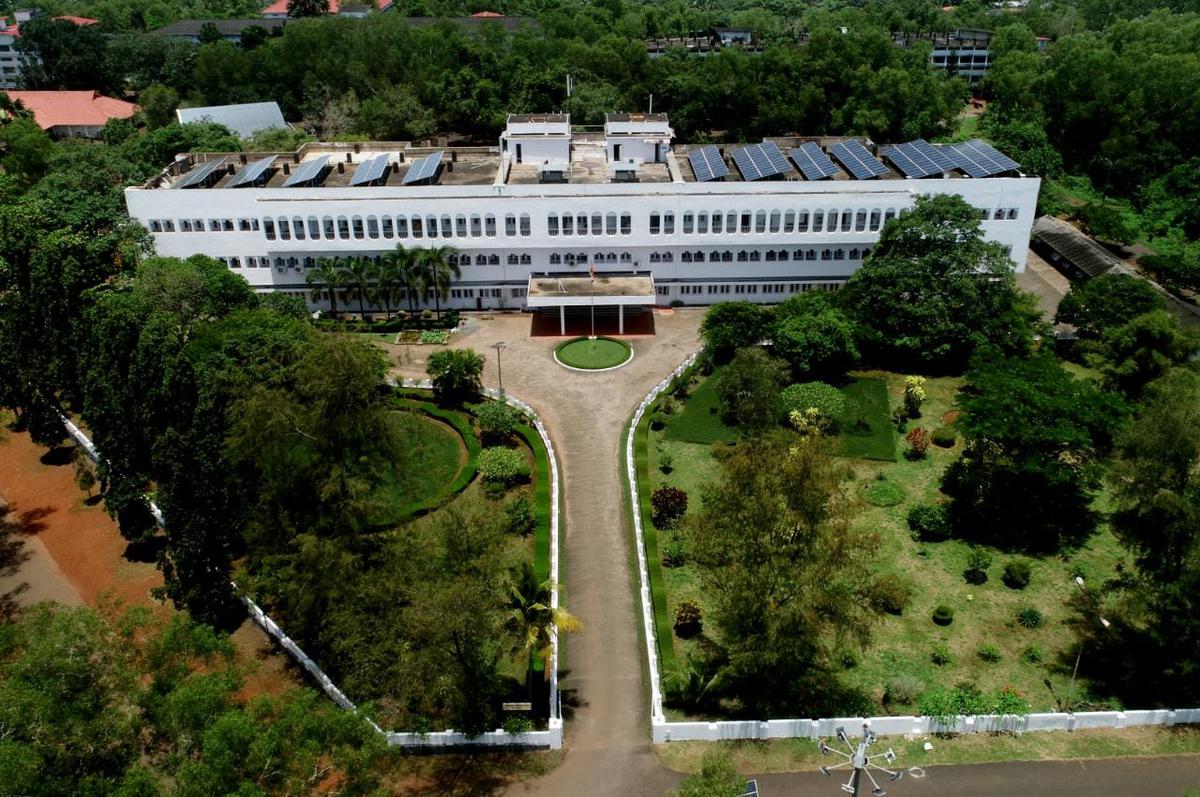
Sreelatha Menon
Sanskrit is finding teachers and students from non-Hindu denominations thanks to the material gains its study offers in Kerala.
The most expected material gain is a job as a degree or post-graduation in Sanskrit can land one into a job in a school or college. Many non-Hindu students especially Muslims are opting for Sanskrit as their subject in higher education and the second language in higher secondary. They are finding jobs in schools and universities.
An intermediate with Sanskrit also can find job openings for teaching in schools.
Kerala offers a quota for faculty positions in universities and at least two posts are there for minorities. These are often filled by Muslims.
Among research guides listed by MG University in Kerala for instance, two out of four are Christians. Sankara University named after the great Sanskrit scholar and teacher of Advaita Adi Sankaracharya has six centres in Kerala. Some are headed by Muslims, others have Muslims as faculty.
The Tirur Centre of the University is headed by Dr Abdulla Shah. The number of Muslim Sanskrit teachers in various colleges in Kerala is proportional to the number of Muslim students learning the subject either as an elective in college or at the degree or PG or doctorate level, says Dr Abdullah Shah.
Kerala Government runs three Sanskrit Colleges and all these represent Muslims in the minority quota. Calicut University’s Sanskrit department has two Muslim teachers Dr KK Abdul Majeed and Dr N A Shihaab.
Speaking to Awaz-the voice, Dr. Majeed said that he began his journey of learning Sanskrit quite unexpectedly at Sri Sankara University at its Quilandy center had vacant seats for a course in philosophy. The university based in Kalady, the birthplace of Sankaracharya had opened about 9 centres in different parts of Kerala. The course offered three electives simultaneously and that included history and Sanskrit.

Shree Shankaracharya University of Sanskrit, Kalady, Kerala
“All of us in that batch were first-time learners of Sanskrit. I began to study seriously. Later for PG, he first took philosophy elsewhere but later moved to Sankara University Centre where all his friends joined the Sanskrit department. "I took Vedanta as it compensated for my dropping out of MA Philosophy,” he says.
He says all his batchmates are now teachers in schools and colleges. "This group included some Muslims too, he says.
Today Dr Majeed is a research guide at Calicut University and is guiding four students. Two of them are Muslims. One of them Mohammad Shameem qualified NET and JRF thrice and also got a job in a school. Right now he has taken leave from his job for research.
His student strength at the university is always around 30 for Sanskrit. This would include at least 1-2 Muslims every year. It has been so in the last 15 years of the department, he says. On the other hand in all these years only one or two Christians have come for PG Sanskrit, he adds.
He credits the founders of the university’s Sanskrit department with creating awareness about the secular nature of the language. They presented it as a language of knowledge as it carries wisdom on different fields of knowledge not just religion or philosophy of one shade.he only way to know all the legacy of the past is by mastering the language, the founders had said. This message resonated with people in Malabar and hence Calicut University has always had students from Muslim communities too, he says.
 The University of Calicut, Kerala
The University of Calicut, Kerala
“When I took Sanskrit and took up teaching, no one criticized me for it”, he concludes.
Teaching Sanskrit is like teaching any other language, says Dr Shamsheer, assistant professor in the Sanskrit department of Kerala University, Thiruvananthapuram. “It could have been English or French. So there is nothing strange about it unless we start thinking in a narrow-minded way,” he says.
He is, however, upset that Muslim teachers are today confined to reserved posts only. “Sanskrit has been taught by Muslim teachers for the past 25 years in Kerala University and there is nothing special about it. What has changed is that earlier there was no quota and now Muslim teachers get posted only under the quota and not in the general category even though they are well qualified,” he says.
“Here I’m the only Muslim teacher but there are two in Calicut University,” he says.
Mohammad Shameem who is doing research under Dr Majeed in Calicut University says his choice of Sanskrit was not accidental but purely a choice based on job opportunities. “My uncle, who had studied Arabic was an upper primary school teacher. So when I was in fifth and had to choose a second language, it was felt that it could get me jobs.’’
He says that Arabic and Sanskrit are considered more than languages and have a halo of divinity. But this is based on the texts written in these languages. “But unlike languages like Arabic, Sanskrit is not confined to texts on Hindu beliefs. It has been used to write about other religions, sciences, logic, and mathematics. It has been used by other religions like Buddhism and Jainism. It is even used to convey the philosophy of atheism! So while the Vedantic scholars said in Sanskrit that Brahmam nityam, the athiests said Shareeram nityam, completely rejecting any metaphysical reality,” says Shameem.
One wont find any atheist text or a text representing any other religion written in Arabic, he adds.
Even Shameem faced problems. “My family was all for my doing a degree in Sanskrit and taking up a job in a school. But when I wanted to do higher studies they were worried,” he says.
He says that linking the language with religion has been a handicap. “And those who project Sanskrit as an aspect of religion, it is more of a political show off than a genuine commitment to the growth of that language”, he says.
There is no national-level research center in Sanskrit. There is also no connection between the Sanskrit departments in north and south India, he says.
ALSO READ: Sanskrit scholar Onampilly Faizy runs Islamic academy where Vedanta and Quran are taught
Shameem doubts if other states provide such opportunities for non-Hindu Sanskrit scholars. ``I saw vacancies in Aligarh and Odisha for Sanskrit teachers, but I am not sure if I will be accepted anywhere outside Kerala.”
